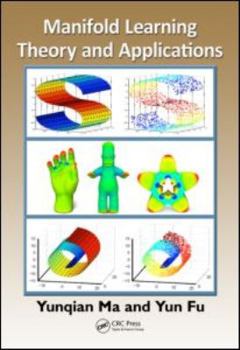Manifold Learning Theory and Applications
Trained to extract actionable information from large volumes of high-dimensional data, engineers and scientists often have trouble isolating meaningful low-dimensional structures hidden in their high-dimensional observations. Manifold learning, a groundbreaking technique designed to tackle these issues of dimensionality reduction, finds widespread application in machine learning, neural networks, pattern recognition, image processing, and computer vision.
Filling a void in the literature, Manifold Learning Theory and Applications incorporates state-of-the-art techniques in manifold learning with a solid theoretical and practical treatment of the subject. Comprehensive in its coverage, this pioneering work explores this novel modality from algorithm creation to successful implementation--offering examples of applications in medical, biometrics, multimedia, and computer vision. Emphasizing implementation, it highlights the various permutations of manifold learning in industry including manifold optimization, large scale manifold learning, semidefinite programming for embedding, manifold models for signal acquisition, compression and processing, and multi scale manifold.
Beginning with an introduction to manifold learning theories and applications, the book includes discussions on the relevance to nonlinear dimensionality reduction, clustering, graph-based subspace learning, spectral learning and embedding, extensions, and multi-manifold modeling. It synergizes cross-domain knowledge for interdisciplinary instructions, offers a rich set of specialized topics contributed by expert professionals and researchers from a variety of fields. Finally, the book discusses specific algorithms and methodologies using case studies to apply manifold learning for real-world problems.





